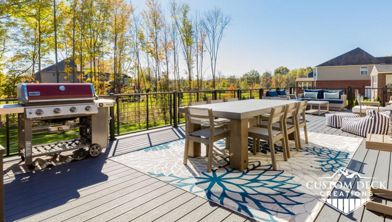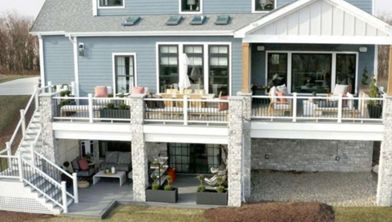Does a Deck Add Value to a House?
Are you considering adding a deck, but you're unsure how much value a deck adds to your property? Learn how decks increase home value and tips to increase return on your deck.
There are plenty of reasons to consider adding a deck to your home: more room to entertain, increased curb appeal, or just an excuse to spend more time outside. While the benefits of a deck are clear, you might also have a few hesitations — such as time and costs.
But there's good news: Within the realm of home projects, especially DIY ones, a deck can provide some of the most tangible value to your home. It’s also usually much less disruptive than many interior upgrades. In some areas, decks are even more popular than patios or porches.
Wondering how much value a deck adds to your house, how much a new deck costs and whether the investment is worth it? You've come to the right place. Read on as we break down the factors you need to consider to fully understand the value of your deck project.
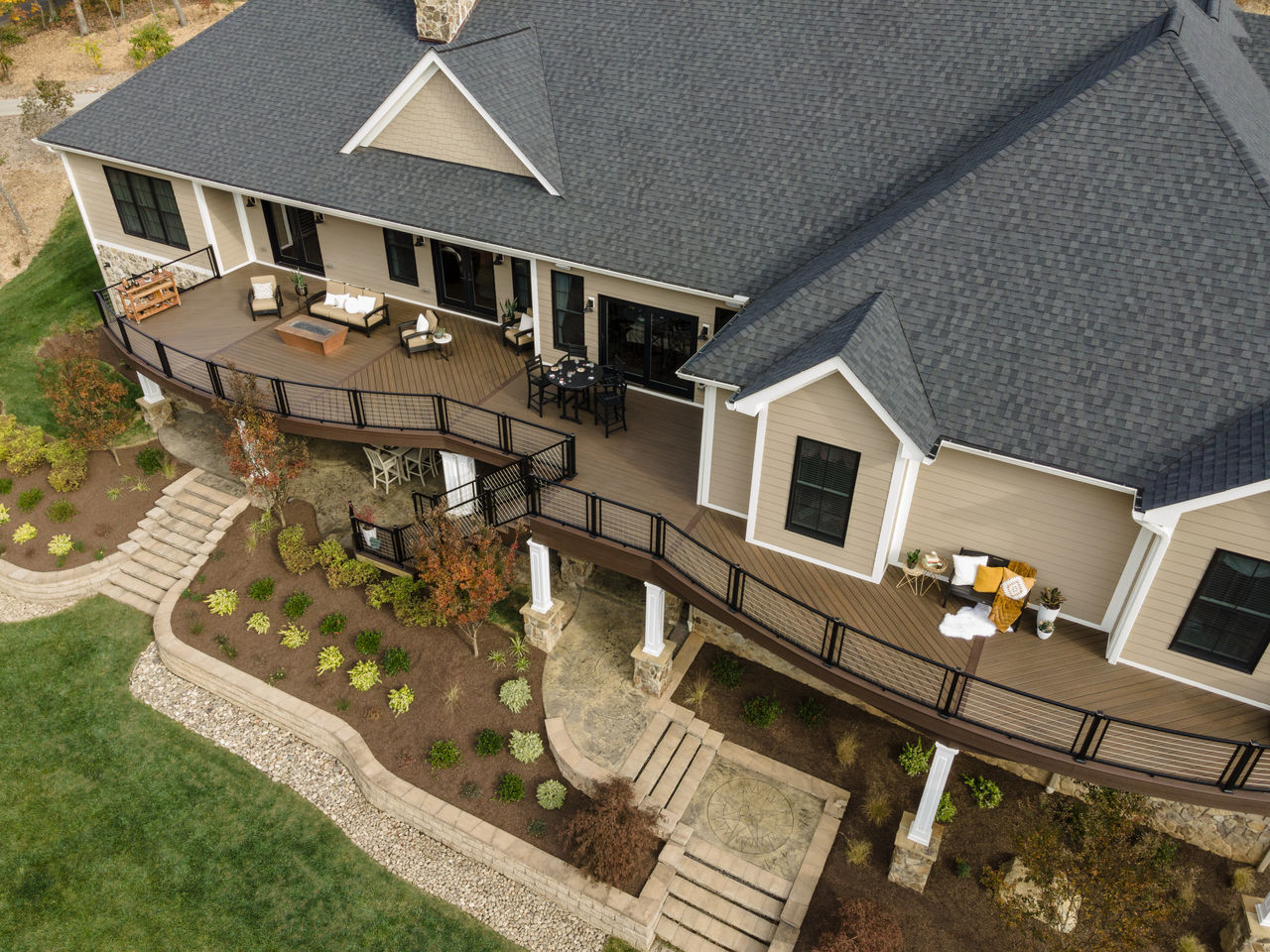
Does Building a Deck Add Value to Your Home?
Yes — though the value can vary. The average deck can recoup more than three fourths of its cost, depending on materials, labor costs and deck design.
How much value does a deck add? According to Remodeling Magazine’s 2024 Cost vs. Value Report, deck additions are in the top 10 home improvements as far as ROI. In fact, a composite deck, which will cost about $24,206, will recoup about 68% at home sale. In regions where outdoor lifestyles are more year-round, the money recouped from building a new deck is greater than in more frigid climates.
Along with the financial gains of home improvement at the time of sale, there are also personal factors to consider. The National Association of Realtors assigns a “joy” score, from 1 to 10, to various renovations — the higher the score, the more the enjoyment. Adding a deck received a 9.8 out of 10 joy score, because:
- 74% of homeowners reported having a greater desire to be home since completing the project.
- 71% have an increased sense of enjoyment when they are at home.
- 66% feel a major sense of accomplishment when they think of the project.
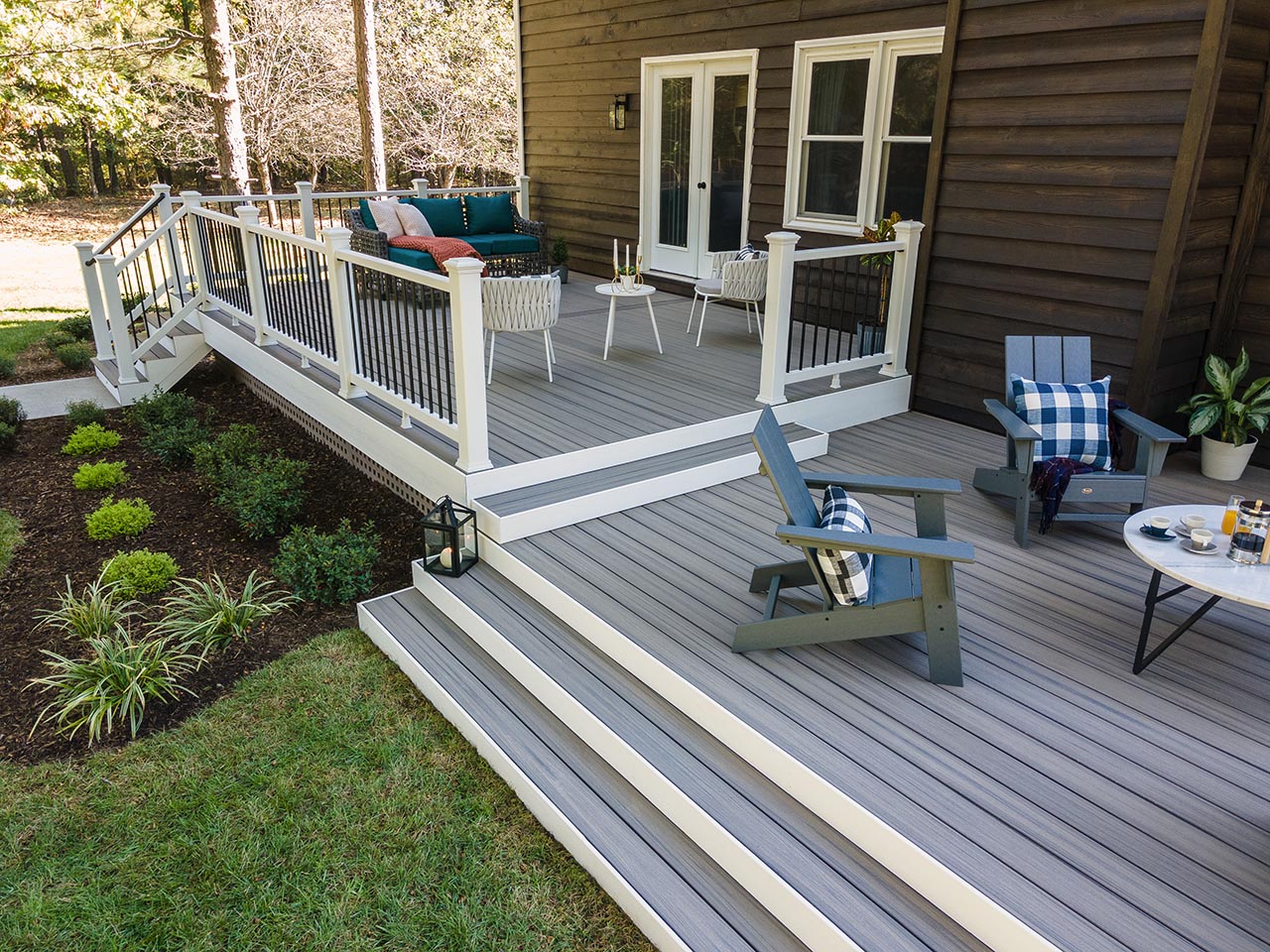
Tips To Make Sure A Deck Increases Home Value
While a deck will increase your home value, the return on investment (ROI) depends on a few key factors, including location, material, timing and labor costs.
Location
If you live in a warm climate where outdoor lifestyles are popular, it’s likely homebuyers will expect you to have a living space to eat al fresco, grill or lounge by the pool. Even in cooler places, a deck provides an expanded area for entertaining friends and family during late spring, summer and early fall.
Additionally, in those colder locales such as North Dakota or Minnesota, homeowners should strongly consider composite decking, which will last much longer than wood. On average, wood decks can last between 10 to 30 years, depending on the material and conditions. Composite decking, on the other hand, can last up to 50 years under the same conditions.
Material
While there is a small difference in the ROI between a wood and composite deck build, the gap increases when you consider the cost of staining, sealing and sanding over time. A wood deck has to be sealed frequently to prevent splitting and rotting. The average wood deck begins to deteriorate in as little as eight years. If you pour water on wood deck boards and it doesn’t bead up, you likely need to apply a new layer of sealant. On the other hand, Trex offers a 25 to 50-year limited warranty on its composite decking, depending on the product line.
Look no further than your local home listings and you'll see multiple listings mention a Trex composite deck. Clearly, realtors and homeowners see value in this backyard amenity. In a recent Zillow search of homes for sale in the greater DC metro area, 25% of the homes listed a Trex deck as a feature.
While wood decks require constant care, Trex composite offers a few superior benefits:
- Easy maintenance: Trex decking needs no sanding, staining, or painting. A little soap and water or a quick power washing is all the maintenance composite boards require.
- Longevity: Unlike wood, which is prone to rot, Trex, made from up to 95% recycled materials, is durable and long lasting.
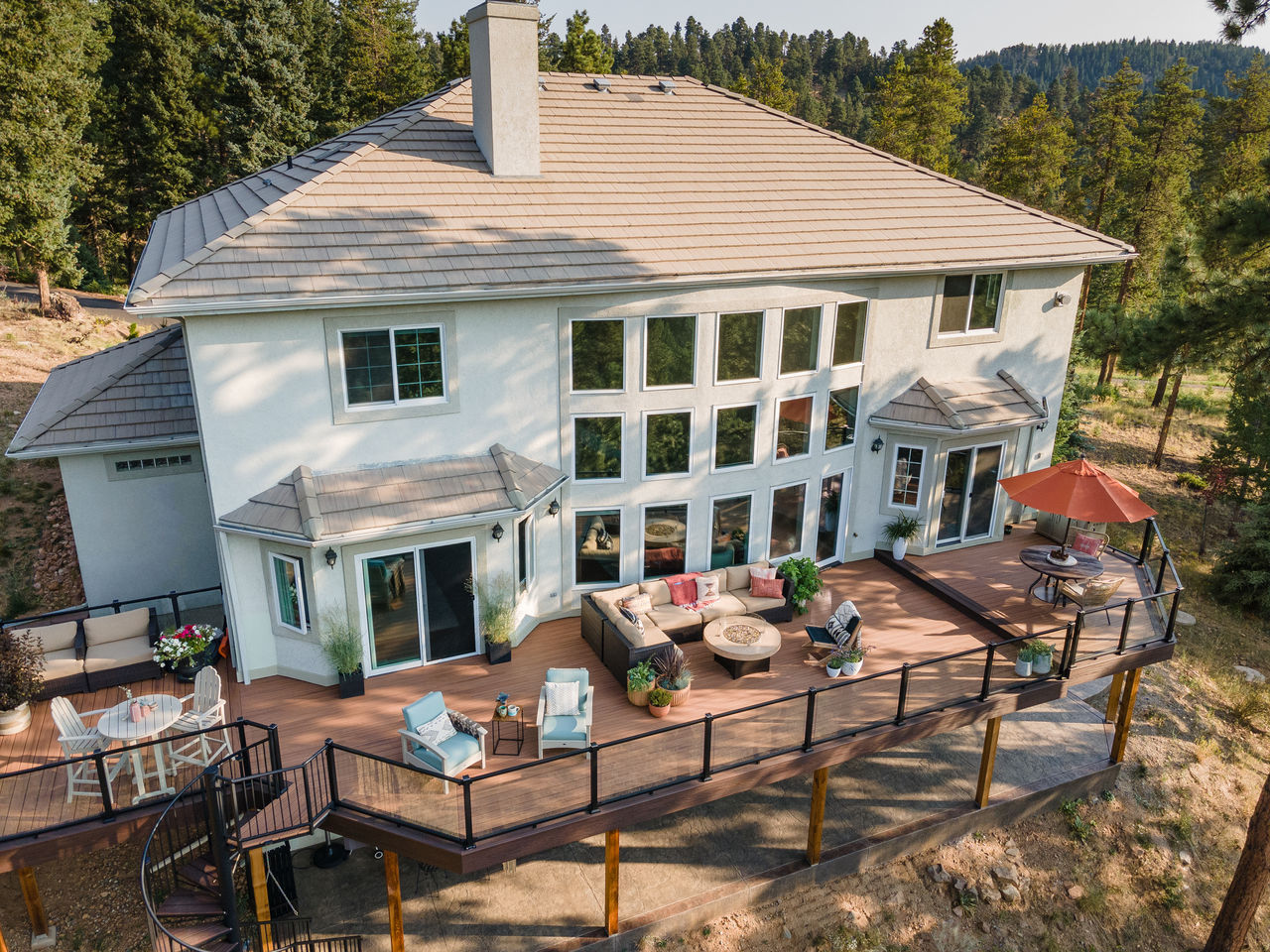
DIY Your Deck
One of the best ways to cut decking costs is to build the deck yourself. You can save significantly on labor costs if you’re a handy DIYer, especially by using a DIY guide to help steer your project. You will need to be sure to obtain proper permits and to follow building codes. Following safety guidelines is essential to any building project.
However, knowing whether or not you're ready for DIY is important before you start building your deck. If you don't have the necessary skills, tools, or time, attempting a DIY deck build could lead to additional costs and frustration.
Timing
As mentioned above, sometimes a deck is valuable for the quality of life it adds to the homeowner, as well as the financial gains. If you are contemplating selling your home in the near future, you might not want to invest in a lavish deck project. However, if you plan to spend many years in your home, it would be worth putting more thought and amenities into your deck build so you can make the most of this outdoor space for years to come.
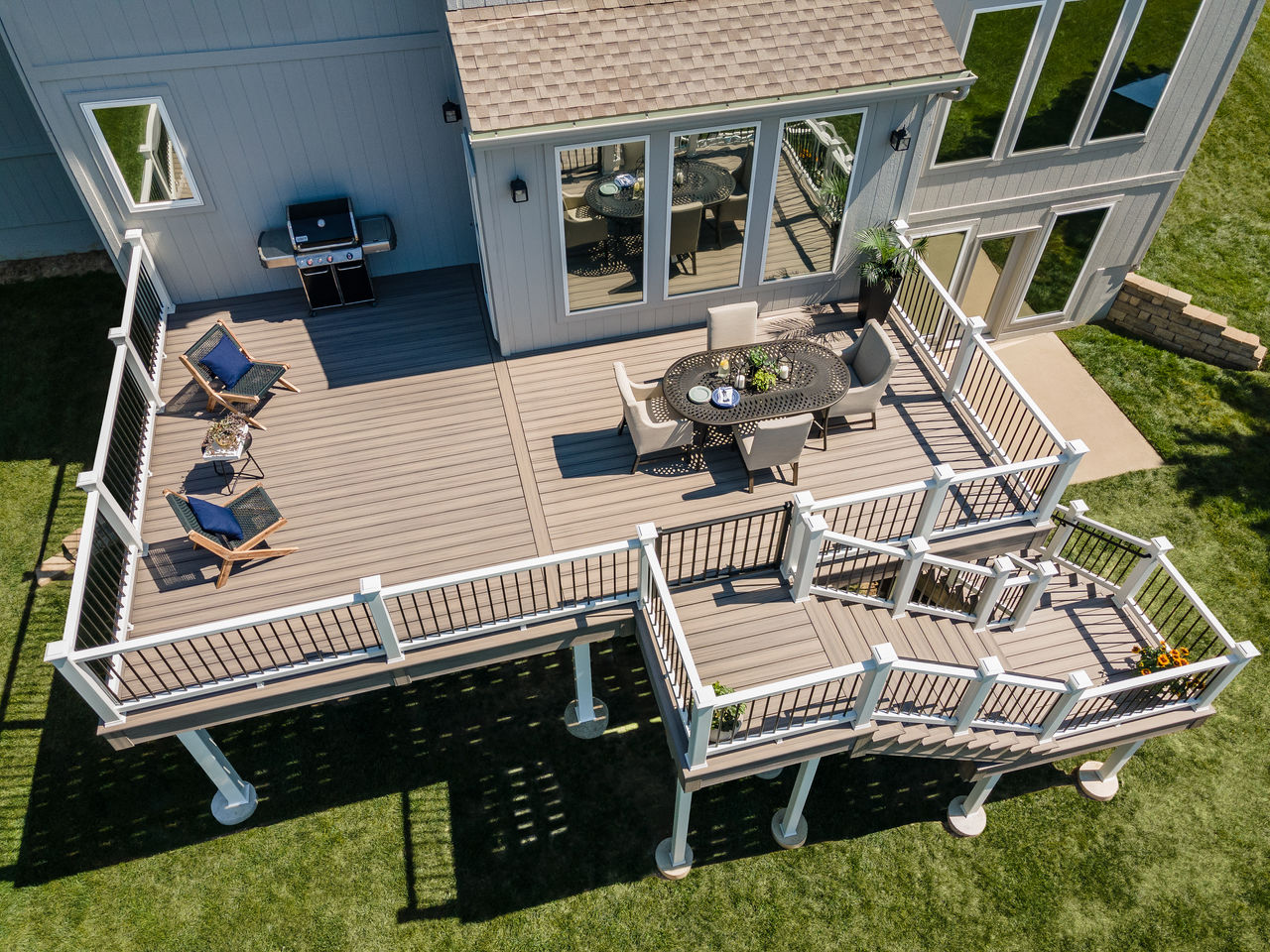
Let Trex Help You With Your Deck
Need help to get started? Use our handy online calculator and designer to figure out how much material you will need.
If building a deck from scratch is beyond your know-how, find a qualified contractor in your area. Talk through how big you want the deck to be, how it should be oriented with the house and share any ideas from our gallery you find appealing. Your dream deck is just a plan away!
This content was partially or fully generated by AI and has been reviewed by our team to ensure accuracy and relevance.
